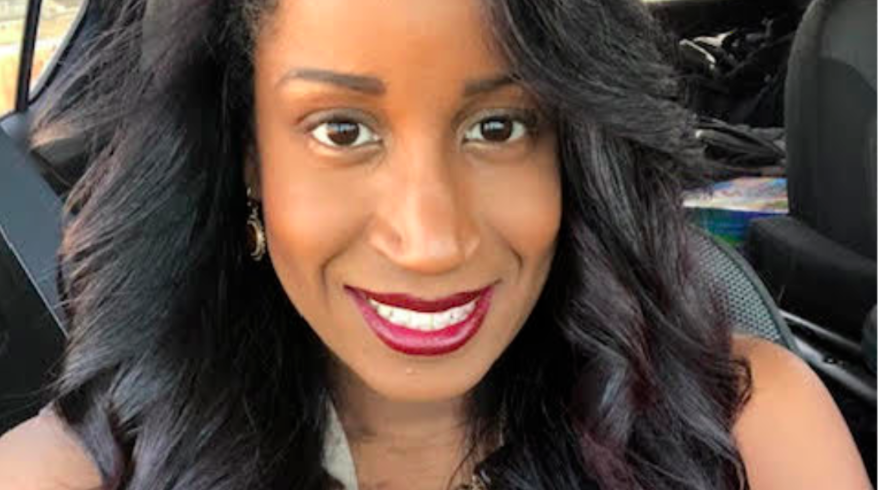
I often get asked the question "What's it like to have married outside your race?"
It's such a loaded question. On one hand, it would be lovely to say it's no different; that no one notices or cares. But sadly, that's not my reality.
I am a mixed woman with chocolate skin. My lineage consists of everything from African to Jewish decent and I am married to a Mexican man.
We have been together since we were 14. We grew up together and even went to college together, so in total we have been in each other's lives for 13 years. Despite all of that, when my husband brought me to visit his father's side of the family, his father refused to address me. In fact, he would go out of his way not to acknowledge me.
When we announced that we had gotten engaged, he didn't approve. He asked questions like, "You know your kids will be Black?" as if that were a terrible consequence of marrying me. Things have not gotten better as time has gone on; he hardly even refers to me by name.
Despite the fact that we're both considered minorities, despite the fact that we've been together "forever," my father-in-law doesn't like me simply because I'm Black.
It's not something you’re able to see until you put on another's shoes and gain a perspective.
Although it varies by several different factors, the rate of interracial marriage in the United States is roughly 18%, according to the Pew Research Center. Also in 2017, it was noted that the percentage of Americans that were okay with interracial marriage is at about 39%. While that number is great — and it's on the rise — it would seem that the majority of Americans, roughly 61%, are not okay with someone marrying outside their own race.
In the media, most interracial marriages are literally Black and white.
"About four-in-ten U.S. intermarried couples include one Hispanic and one white spouse," according to the Pew Research Center. Following white/Hispanic, the majority pairings are white/Asian — 13%, white/Black — 11%, and Hispanic/Black — 8%. So if white/Black marriages account for only 11%, why is that portrayed so prevalently? The struggles of interracial marriage between any races can be challenging, but many times, challenges are more pronounced outside of the more "normalized" white/Black pairing.
My husband and I have one daughter who is 18 months old. She has fair skin and smooth wavy hair.
My father-in-law has gone out of his way to spend time with her while actively ignoring me or criticizing everything I do with her. We have another due soon, and I find myself wondering if he has darker skin, how will his grandpa treat him?
There was one Saturday very recently where my husband went to work, and he called me in the middle of the day to tell me "Dad is on the way."
I was wildly uncomfortable with this given our past relationship. Apparently, his dad thought I was working and that our daughter was being watched by my mom.
When he arrived, I answered the door and he did not hide his displeasure and shock. He shook my hand. He played with my daughter happily and made no move to make any kind of conversation with me. My husband came back on his lunch break to help because I was panicking. He and his dad made good conversation for about 45 minutes while I sat and watched. He hugged my husband and reluctantly shook my hand when he left.
He sees the "stereotypical" Black woman as they are portrayed in the media — loud and sassy with no filter. Over the 12 years that I have known this man, he has made no attempt to get to know me as a person; he is unable to lift himself above his views.
Outside of the family, the water isn't much less turbulent.
Whenever my husband and I go places, it is always assumed that we are either not of the same group or not together. This is especially prevalent when I am out and about with his family.
When I am out with my daughter, I get weird looks all of the time and am often asked if I am her sitter and if I am babysitting. My husband doesn't get the same questions. Instead of being curious as to her race, the questions he receive revolve on how he knows her, because when a man, particularly a POC, is alone with a young girl, they are on the receiving end of a huge amount of scrutiny.
Race and racism issues go far beyond that of "Black and white."
The prejudices put in place, particularly against Black people, are a product of white supremacy — but can be perpetrated in a multitude of ways. Whenever I have brought the race issue to light, the response I receive most of the time is "Well, I don't see race." The answer here is to not be blind to race.
In my family, we not only see color — we celebrate it.
We have to learn to see acknowledge and accept each other's differences to even begin to understand their struggles or their pain. To say "I don't see race" is to deny the problem even exists at all. We can all learn and grow through our experiences. I just hope we can all begin to see the flaws in our skewed thinking to give ourselves a better chance at a clear future.



